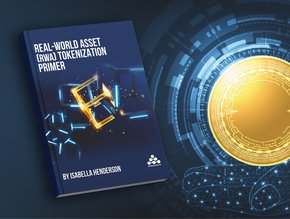Article
Sustainability
Repairing eKYC, AML and the disjointed customer experience
By Dean Nicolls, VP of Global Marketing, Jumio
October 07, 2020
undefined mins

There are five practical steps financial institutions (FIs) can take to lessen the friction between their fraud compliance and user experience teams...
There are five practical steps financial institutions (FIs) can take to lessen the friction between their fraud compliance and user experience teams.
Following these steps can help reduce interdepartmental friction, as well as the amount of friction imposed on customers during the onboarding process. These include:
- Nix the one-size-fits-all experience. Not all applicants are created equal. Some applicants for a given product are already customers which means you’ve already captured data about their identities and transaction histories. Other applicants may have found your website organically which means you have virtually no information about them. So, each user experience should reflect how much intel you have about the applicant.
- Integrate screening and identity proofing. Many FIs treat AML screening and identity verification as two distinct, mutually exclusive processes. But, financial institutions can leverage identity proofing to extract key fields from the ID document such as name, address, date of birth and the applicant’s picture, which can be used to check against PEPs and sanctions lists to help reduce the number of false positives. Fewer false positives translate to fewer cases, lower operational costs and a better user experience.
- Higher levels of identity assurance. Many FIs still rely on data-centric approaches for establishing an applicant’s digital identity and this can open the door to money laundering. Data-centric approaches involve checking the identity data (e.g., name, address, phone, date of birth) entered by a user against third-party sources, such as credit bureau data. Thanks to large-scale data breaches, social engineering and the dark web, much of that data has been compromised. Relying on stronger forms of identity assurance, including a picture of a government-issued ID, a corroborating selfie and liveness checks can keep bad actors out of your ecosystem.
- Automate, automate, automate. While technology has made it easy to access huge data volumes, it still can’t process data quickly or effectively enough. The problem of speed and accuracy impacts everyone in the chain — regulators, compliance teams, financial institutions and their end customers. While speed is necessary for customer onboarding and for detecting and reporting risk, it also leads to countless false positives that are impossible to check accurately, meaning criminals slip through the net.
- More vendors = more problems. Efficiency is lost using multiple solutions, both with respect to workforce and data. Data gathered during the onboarding process as part of the KYC and customer due diligence process should be leveraged going forward as part of the ongoing KYC program as well as for performing transaction monitoring. For example, a customer’s risk rating, which is created during the onboarding process, can be influenced by how many transaction monitoring cases have been created in their name or how many SARs have been filed on them.
When your teams work together from the outset and focus on delivering a better customer journey, they can build smarter, more flexible processes that produce happier customers, reduced risk and more compliant procedures.
This article was contributed by Dean Nicolls, VP of Global Marketing, Jumio
Share
Share
- BoI: How Customer Analytics can Support Financial Well-BeingFinancial Services (FinServ)
- Money20/20 USA: Personetics – Helping Banks With KYC ToolsRegTech & Compliance
- Money20/20 USA: Jumio on the rise of generative AI in fraudFraud & ID Verification
- EY: 99% of FIs deploy AI in 2023; are they prepared?Financial Services (FinServ)
RelatedContent






